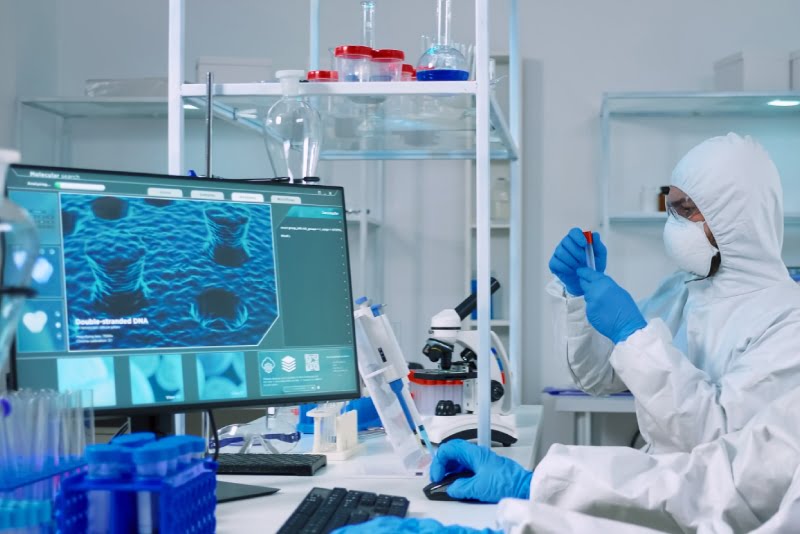
AI and the Future of Pharmaceutical R&D
April 28, 2024
The pharmaceutical industry stands on the brink of a revolution, spurred by advancements in artificial intelligence (AI). As AI technologies evolve, their impact on pharmaceutical research and development (R&D) is becoming increasingly profound, promising to transform traditional methods and accelerate the path from discovery to delivery.
Accelerating Drug Discovery
One of the most significant impacts of AI in pharmaceutical R&D is its ability to streamline the drug discovery process. AI algorithms can analyze vast datasets far more quickly than human researchers, identifying potential drug candidates at an unprecedented pace. For example, AI has been used to predict the structure of proteins related to diseases like COVID-19, speeding up the initial phase of drug development.
"AI's ability to process and learn from vast datasets is like giving scientists a super-powered microscope to see solutions they couldn't before," explains a pharmaceutical researcher.
Enhancing Predictive Modeling
AI excels in building predictive models that can foresee how new drugs will behave in the human body. This capability not only speeds up the development process but also enhances the safety profiles of new medications. By predicting adverse effects before clinical trials, AI can save both time and resources while ensuring patient safety.
Personalizing Medicine
The future of pharmaceuticals is not just about discovering new drugs, but also about tailoring them to individual patients. AI-driven analyses of genetic data are paving the way for personalized medicine, where treatments are optimized for each patient's genetic makeup. This approach promises to improve therapeutic efficacy and minimize side effects, marking a shift from the one-size-fits-all strategy.
Streamlining Clinical Trials
AI can also revolutionize how clinical trials are conducted. By using algorithms to monitor and analyze patient data in real time, pharmaceutical companies can identify trends and responses to a drug more quickly. This real-time data processing helps in adjusting dosages, managing side effects, and improving overall trial efficacy.
A recent initiative by a leading pharma company utilized AI to monitor clinical trial participants remotely, using data from wearable devices. This approach reduced the need for frequent on-site visits, making trials more patient-friendly and efficient.
Overcoming Challenges
Despite its potential, integrating AI into pharmaceutical R&D is not without challenges. Issues such as data privacy, the need for high-quality data, and regulatory hurdles must be addressed to fully leverage AI capabilities. Moreover, there's a growing need for professionals who are skilled both in pharmaceutical sciences and AI technology.
As AI continues to evolve, its integration into pharmaceutical R&D is expected to deepen, bringing about more rapid discoveries, personalized treatments, and efficient trials. The fusion of AI with pharmaceutical sciences holds the promise not only to enhance the drug development process but also to revolutionize healthcare in ways we are just beginning to understand
© 2024 ITSoli